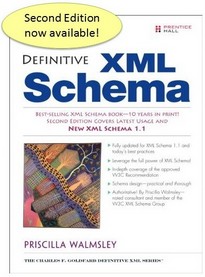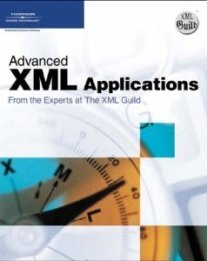gml:TimeOrdinalEra
Its content model follows the pattern of gml:TimeEdge, inheriting standard properties from gml:DefinitionType, and adding gml:start, gml:end and gml:extent properties, a set of gml:member properties which indicate ordered gml:TimeOrdinalEra elements, and a gml:group property which points to the parent era. The recursive inclusion of gml:TimeOrdinalEra elements allow the construction of an arbitrary depth hierarchical ordinal reference schema, such that an ordinal era at a given level of the hierarchy includes a sequence of shorter, coterminous ordinal eras.
Element information
Namespace: http://www.opengis.net/gml/3.2
Schema document: external/ogc/gml/3.2.1/temporalReferenceSystems.xsd
Type: gml:TimeOrdinalEraType
Properties: Global, Qualified
Content
- Sequence [1..1]
- gml:metaDataProperty [0..*]
- gml:description [0..1]The value of this property is a text description of the object. gml:description uses gml:StringOrRefType as its content model, so it may contain a simple text string content, or carry a reference to an external description. The use of gml:description to reference an external description has been deprecated and replaced by the gml:descriptionReference property.
- gml:descriptionReference [0..1]The value of this property is a remote text description of the object. The xlink:href attribute of the gml:descriptionReference property references the external description.
- gml:identifier [1..1]Often, a special identifier is assigned to an object by the maintaining authority with the intention that it is used in references to the object For such cases, the codeSpace shall be provided. That identifier is usually unique either globally or within an application domain. gml:identifier is a pre-defined property for such identifiers.
- gml:name [0..*]The gml:name property provides a label or identifier for the object, commonly a descriptive name. An object may have several names, typically assigned by different authorities. gml:name uses the gml:CodeType content model. The authority for a name is indicated by the value of its (optional) codeSpace attribute. The name may or may not be unique, as determined by the rules of the organization responsible for the codeSpace. In common usage there will be one name per authority, so a processing application may select the name from its preferred codeSpace.
- gml:remarks [0..1]
- gml:relatedTime [0..*]
- gml:start [0..1]
- gml:end [0..1]
- gml:extent [0..1]
- gml:member [0..*]
- gml:group [0..1]
from type gml:DefinitionBaseTypefrom type gml:DefinitionType
Attributes
| Name | Occ | Type | Description | Notes |
|---|---|---|---|---|
| gml:id | [1..1] | xsd:ID | The attribute gml:id supports provision of a handle for the XML element representing a GML Object. Its use is mandatory for all GML objects. It is of XML type ID, so is constrained to be unique in the XML document within which it occurs. | from type gml:DefinitionBaseType |
Used in
- Type gml:TimeOrdinalEraPropertyType (Elements gml:component, gml:member)
Sample instance
<gml:TimeOrdinalEra gml:id="ID"> <gml:metaDataProperty> <gml:GenericMetaData>Any text, intermingled with: <!--any element--> </gml:GenericMetaData> </gml:metaDataProperty> <gml:description>string</gml:description> <gml:descriptionReference/> <gml:identifier codeSpace="http://www.example.com/">string</gml:identifier> <gml:name>string</gml:name> <gml:remarks>string</gml:remarks> <gml:relatedTime> <gml:TimeInstant gml:id="ID"> <gml:metaDataProperty>... </gml:metaDataProperty> <gml:description>string</gml:description> <gml:descriptionReference/> <gml:identifier codeSpace="http://www.example.com/">string</gml:identifier> <gml:name>string</gml:name> <gml:relatedTime>... </gml:relatedTime> <gml:timePosition>12:00:00</gml:timePosition> </gml:TimeInstant> </gml:relatedTime> <gml:start> <gml:TimeNode gml:id="ID"> <gml:metaDataProperty>... </gml:metaDataProperty> <gml:description>string</gml:description> <gml:descriptionReference/> <gml:identifier codeSpace="http://www.example.com/">string</gml:identifier> <gml:name>string</gml:name> <gml:relatedTime>... </gml:relatedTime> <gml:complex/> <gml:previousEdge>... </gml:previousEdge> <gml:nextEdge>... </gml:nextEdge> <gml:position>... </gml:position> </gml:TimeNode> </gml:start> <gml:end> <gml:TimeNode gml:id="ID"> <gml:metaDataProperty>... </gml:metaDataProperty> <gml:description>string</gml:description> <gml:descriptionReference/> <gml:identifier codeSpace="http://www.example.com/">string</gml:identifier> <gml:name>string</gml:name> <gml:relatedTime>... </gml:relatedTime> <gml:complex/> <gml:previousEdge>... </gml:previousEdge> <gml:nextEdge>... </gml:nextEdge> <gml:position>... </gml:position> </gml:TimeNode> </gml:end> <gml:extent> <gml:TimePeriod gml:id="ID"> <gml:metaDataProperty>... </gml:metaDataProperty> <gml:description>string</gml:description> <gml:descriptionReference/> <gml:identifier codeSpace="http://www.example.com/">string</gml:identifier> <gml:name>string</gml:name> <gml:relatedTime>... </gml:relatedTime> <gml:beginPosition>12:00:00</gml:beginPosition> <gml:endPosition>12:00:00</gml:endPosition> <gml:duration>P1Y2M3DT10H</gml:duration> </gml:TimePeriod> </gml:extent> <gml:member> </gml:member> <gml:group/> </gml:TimeOrdinalEra>



